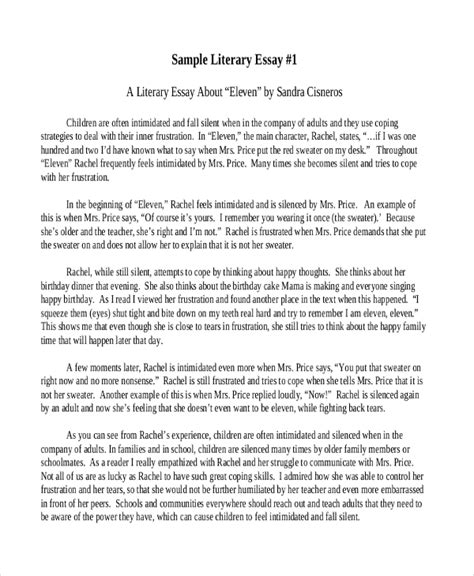Importance of AP English Literature Essays
AP English Literature essays are an integral part of the Advanced Placement Program, designed to challenge students with college-level literary analysis and critical thinking. They prepare students for the demands of higher education and beyond, fostering essential skills such as:

- Critical reading and interpretation
- Analytical writing and argumentation
- Literary research and scholarship
- Cultural and historical context understanding
Types of AP English Literature Essays
AP English Literature essays fall into three main categories:
- Thesis-driven essays: Develop a central argument about a literary text, supported by evidence and analysis.
- Literary analysis essays: Explore a specific aspect of a literary work, such as character development, symbolism, or theme.
- Comparative essays: Analyze two or more literary texts, comparing and contrasting their content, style, or themes.
Elements of a Strong AP English Literature Essay
A successful AP English Literature essay typically includes the following elements:
1. Introduction
– Hook: A captivating opening that draws readers into the essay
– Thesis statement: A clear and concise statement of the essay’s central argument
2. Body Paragraphs
– Topic sentence: Introduces the main idea of each paragraph
– Evidence: Supports the topic sentence with specific quotes or examples from the text
– Analysis: Interprets the evidence and explains its significance to the essay’s argument
3. Conclusion
– Summarizes the main points of the essay
– Reasserts the thesis statement
– Provides a final thought or reflection
Creating a Strong Thesis Statement
A strong thesis statement is crucial for a successful AP English Literature essay. It should be:
- Specific: Focused on a particular aspect of the text
- Arguable: Presents a clear and defensible interpretation
- Supported by evidence: Based on specific examples or quotes from the text
Tips for Writing Effective AP English Literature Essays
- Read the text carefully: Multiple times to fully understand the content and identify key themes.
- Annotate the text: Highlight, underline, and write notes to identify important passages and literary devices.
- Develop a strong thesis statement: Use close reading and analysis to formulate a specific and arguable claim.
- Organize your essay: Outline your arguments and evidence before writing to ensure a logical flow.
- Use specific examples: Cite specific passages or lines from the text to support your claims.
- Analyze the evidence: Interpret and explain how the evidence supports your argument.
- Write clearly and concisely: Use precise language and avoid unnecessary jargon.
- Proofread carefully: Review your essay for any errors in grammar, spelling, or punctuation.
Step-by-Step Approach to AP English Literature Essays
1. Read and Annotate: Thoroughly read the literary text and make annotations to identify key points.
2. Formulate Thesis Statement: Develop a specific and arguable thesis statement that presents your central argument.
3. Outline: Create an outline that organizes your arguments and shows how they support your thesis.
4. Write Body Paragraphs: Develop each body paragraph around a specific argument, using evidence and analysis to support it.
5. Craft Introduction and Conclusion: Write an introduction that hooks readers and presents your thesis, and a conclusion that summarizes your arguments and restates your thesis.
Table 1: Comparative Essay Topic Ideas
| Comparison | Possible Topics |
|---|---|
| Two literary works by the same author | Similarities and differences in style, themes, or characters |
| Two different genres | How genres shape the narrative, characterization, or symbolism |
| Two works from different time periods | How cultural and historical contexts influence literary themes and aesthetics |
| Two works from different perspectives | How different points of view can shape the interpretation of events or characters |
Table 2: Literary Analysis Essay Topics
| Literary Aspect | Possible Topics |
|---|---|
| Character development | Analyzing the motivations, conflicts, and transformative experiences of characters |
| Symbolism | Exploring the use of symbols, imagery, and allegories to convey deeper meanings |
| Theme analysis | Identifying and analyzing the central themes and how they are explored throughout the text |
| Figurative language | Examining the use of metaphors, similes, personification, and other literary devices |
Table 3: Thesis Statement Examples
| Literary Work | Thesis Statement |
|---|---|
| Jane Eyre by Charlotte Brontë | Jane Eyre’s journey represents the Victorian ideal of female empowerment through self-reliance and resilience. |
| The Great Gatsby by F. Scott Fitzgerald | The American Dream is depicted as fundamentally corrosive and destructive, leading to disillusionment and tragedy. |
| Hamlet by William Shakespeare | Hamlet’s tragic flaw is not his indecisiveness but his inability to reconcile his desire for justice with the moral complexities of the world. |
Table 4: Writing Tips for AP English Literature Essays
| Tip | Description |
|---|---|
| Use active voice | Avoid using passive constructions that weaken your writing. |
| Use specific language | Avoid vague and general terms. Be precise and descriptive in your analysis. |
| Avoid generalizations | Support your claims with specific examples from the text. |
| Write in present tense | When discussing literary works, use present tense to describe the events and characters. |
| Use literary terms correctly | Define and use literary terms accurately to enhance your analysis. |
